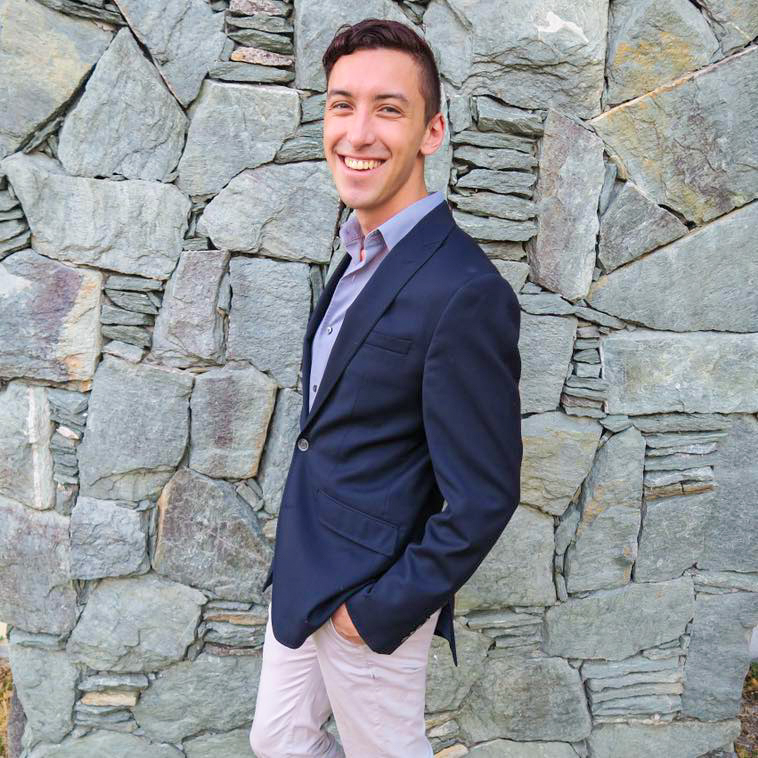
Michael Alexander is a gay man navigating life in the context of weekly testosterone-fueled meetings with his fraternity brothers as a member of the Kappa Sigma fraternity.
“I can’t think of any instances where my sexuality defined who I am as a brother,” said Alexander, a brother of the fraternity since 2014 and fifth-year architecture student who is about to graduate. “My brothers have always had my back.”
For openly gay men like Alexander, joining Greek Life at any university can be a harrowing journey, especially at the time when most young men are growing into and identifying with their sexuality.
However, Alexander said being Greek has been one of the best decisions he’s made.
“Looking back, I see the amazing strides made in the unification of Greek Life at Miami, with all the stigmas and bad press Greek Life gets on a national scale, all of UM’s chapters work hard on disregarding those stigmas as they’re not a representation of Greek Life at all,” Alexander said.
Though newly-inducted Alpha Sigma Phi brother Jason Perez identifies as heterosexual, he said one of his fraternity brothers is gay and all members “treat him with the same respect and dignity” as any other member of the fraternity.
“One of the biggest selling points for Alpha Sigma Phi when I was rushing was that they have different personalities within the frat, and they don’t all fit into the mold of the stereotypical ‘frat guy,’” Perez said.
The age of the hyper-masculine fraternity culture is curbing, according to a 2007 study by the Lambda 10 project. About 74 percent of undergraduate students rated the climate of their chapter for LGBTQ people as friendly, and 71 percent said the climate for LGBTQ people was respectful, according to the study.
James Rauh recently came out as gay to his friends and family after several years of “convincing” himself he was straight. He is now a freshman studying international finance and marketing and said he is considering joining a fraternity next year.
“As someone who isn’t heteronormative, I’m honestly not concerned with any discrimination,” Rauh said. “I think the inability for GBTQ members to join a fraternity is rapidly disappearing. I personally know many fraternity brothers who don’t identify as straight, and I know from their experiences that it doesn’t take anything away from being in a frat.”
Rauh said the only reason he didn’t join one this year was because of a time commitment conflict. He said with all of his extracurricular activities and job “it would be too much on his plate.”
He is among the many freshmen who are considering or have already joined Greek Life at University of Miami. Helpful to the atmosphere is the university’s no-hazing stance. Most recently, Delta Gamma Women’s Fraternity was kicked off campus for hazing. The strict policies are supposed to provide a safer and more engaging experience for incoming pledges.
But not all universities have policies like Miami’s. In the study done by the Lambda 10 project, 22 percent of undergraduate students indicated that they were victims of harassment because of their sexual orientation, gender identity or gender expression. A quarter of those undergrads who were not “out” said the harassment included threats of outing or expulsion from the fraternity.
Projects sponsored by the University of Miami such as The Tunnel of Oppression and the Gay Straight Alliance are aimed at helping to create a more positive environment for LGBTQ students. Within fraternities, the culture seems to be shifting toward a more progressive and accepting approach. Most students mentioned the acceptance not only within their own fraternities but throughout the entire university, which they cited as a possible reason for the more open environment and diversity within the fraternities. On an even larger scale, the way the nation treats members of the LGBTQ community has become exponentially better, although there is still much work to be done.
“I think our generation as a whole is more inclusive toward the LGBTQ+ community than older generations,” president of Kappa Sigma Bradley Sheehan said. “Nobody really cares about your sexuality or identification.”
Alexander said he encourages everyone, including freshmen who are wary of rushing, to join Greek Life.
“I’d tell them to forget all the stereotypes that the media has engraved in their heads,” Alexander said. “I would also tell them to go into rush with an open mind and give everyone a fair chance because that’s what the organizations are doing, too.”
Featured photo by Pixabay user Wokandpix.





